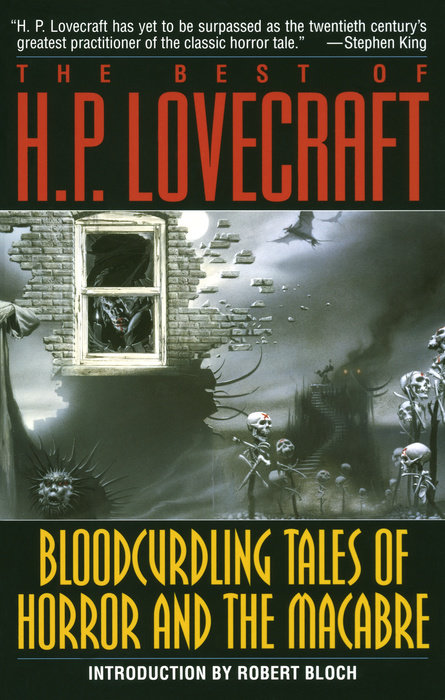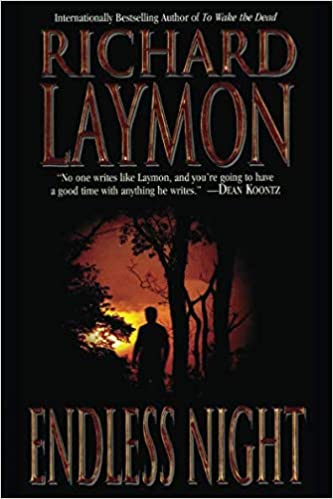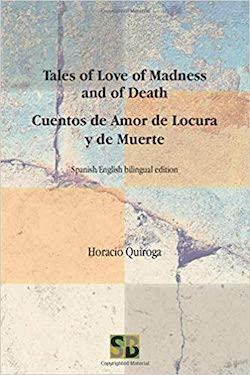To celebrate the release of the second season of Come Join Us By The Fire, our audio horror anthology, we’ve asked authors with stories included in this year’s anthology to join us and write about horror. Below, Gabino Iglesias, whose story “The Song of the Lady Rose” you can listen to here, writes about three books that had an indelible impact on his life and writing.
Before I was a horror writer, I was a horror reader, and before I was an avid horror reader, I was lucky enough to come into contact with horror books that had a huge impact on me. There are dozens of books and movies that contributed to me falling in love with the genre at a relatively young age (parents: your kids will turn out like me if you let them read horror and watch The Exorcist when they’re way too young). In fact, there are so many that, instead of specific books, I often think of writers who had a huge influence on me early on and fed my budding love for dark, spooky, eerie, scary, dark, gory literature. H.P. Lovecraft, Stephen King, Edgar Allan Poe, Richard Laymon, Brian Keene, and Bentley Little come to mind. Yes, I know how white and male this list is, but that was all I knew back then. In any case, I learned something from each of these writers, and each one of them brought something new to me that made me fall even harder for horror. I could write a book about the novels and stories that made me a horror fan, but I want to focus on three that had a huge impact early on and that I carry with me to this day.
blank text
Bloodcurdling Tales of Horror and the Macabre, H.P. Lovecraft
I grew up in Puerto Rico. My country is 100 miles long by 35 miles wide. There weren’t many bookstores around when I was a kid. Well, there weren’t many bookstores around later, either, but combine poverty with lack of transportation and no bookstores and you can imagine how hard it was to get the books I wanted when I wanted them. In any case, I can’t remember how this book ended up in my hands, but I wouldn’t be surprised if mysterious forces were at play.

At the time, I was still developing my English skills, and Lovecraft isn’t the easiest read for a kid who’s not a native speaker. I ended up reading with a little dictionary by my side, and in the process developed so much vocabulary that I soon could write better than my teachers. The stories in this book, which include “The Call of Cthulhu,” “The Rats in the Walls,” “The Shadow Over Innsmouth,” “Pickman’s Model,” “The Dunwich Horror,” and “The Color Out of Space,” among other classics, had the same effect on me they’ve had in many other young horror readers and writers: they showed me how strange and expansive the genre could be.
I wanted to write stories like that. I wanted to create strange lands and old gods as well as the forgotten cultures that prayed to them. I wanted to make people afraid of things from beyond the stars. More importantly, I also wanted to read as much of that stuff as possible, and that led to Robert E. Howard, August Derleth, and Clark Ashton Smith, to name a few. As a person of color, and one who constantly writes about and gives keynotes about Otherness and diversity, I’m aware of old Howard’s problematic views. However, those issues were nowhere near my thoughts at the time, and to deny the impact Lovecraft had on my budding love for horror would be unfair. My solution has been to write Lovecraftian fiction in Spanglish and packed with characters that would have made old Howard gasp.
Endless Night, Richard Laymon
I wasn’t ready for this. I was too young. I had never been exposed to this level of brutality in fiction. I loved every second of it.

Laymon was, like every prolific horror author, a man whose narratives vary in terms of quality, but as a fan, I can tell you he is always entertaining and had a superb understanding of the place where engaging pulp meets shocking horror. Reading Endless Night was like opening a door and realizing there was a world full of possibilities that I hadn’t known existed. Sure, Lovecraft and Poe wrote stuff that was creepy and atmospheric, but Laymon kicked in the door and started blasting away with a shotgun full of gore, chaos, brutality, blood, murder, and mayhem. People got killed in extremely graphic ways. There was abuse in this story, as well as awful people who enjoyed killing. I already loved horror when I read Endless Night, but the novel made me understand that not all horror was created equal and that the stories in my head, the brutal narratives I wanted to tell even at that age, could be told and there would be an audience for them out there.
Funny story: My first “published” story was for a class. It was about a strange creature that escaped from a basement and murdered two thirds of my neighborhood in horrific ways, some of which later I would encounter in the film Cannibal Holocaust. My parents were called into school and I learned why changing the names of people in your stories is a smart move.
Tales of Love, Madness, and Death, Horacio Quiroga

I was always in trouble at school (I know, you’re shocked). From time to time, they would send me to our tiny library and let me pick something up and read just to get me out of there. One day, I picked up Quiroga’s Tales of Love, Madness, and Death and my life changed.
You see, I thought horror was about being scared, but this book made me realize the best horror could make you feel profoundly unsettled, and that was even better than just being scared. Stories like “The Decapitated Chicken” and “The Solitaire” opened my eyes to the power of literature all over again because they made me feel uncomfortable and because the monsters were your neighbors, not some entity from the bottom of the ocean.
Also, as someone who had only read horror in English, Quiroga’s work was a reminder that horror could be written in any language, and that it could have a deep sense of place and culture
Gabino Iglesias is an author, book reviewer and professor living in Austin, Texas. Find him on Twitter at @Gabino_Iglesias.
Listen to Gabino’s story “The Song of the Lady Rose” on Google Play here, and listen the the entirety of the second season of Come Join Us By The Fire here.



